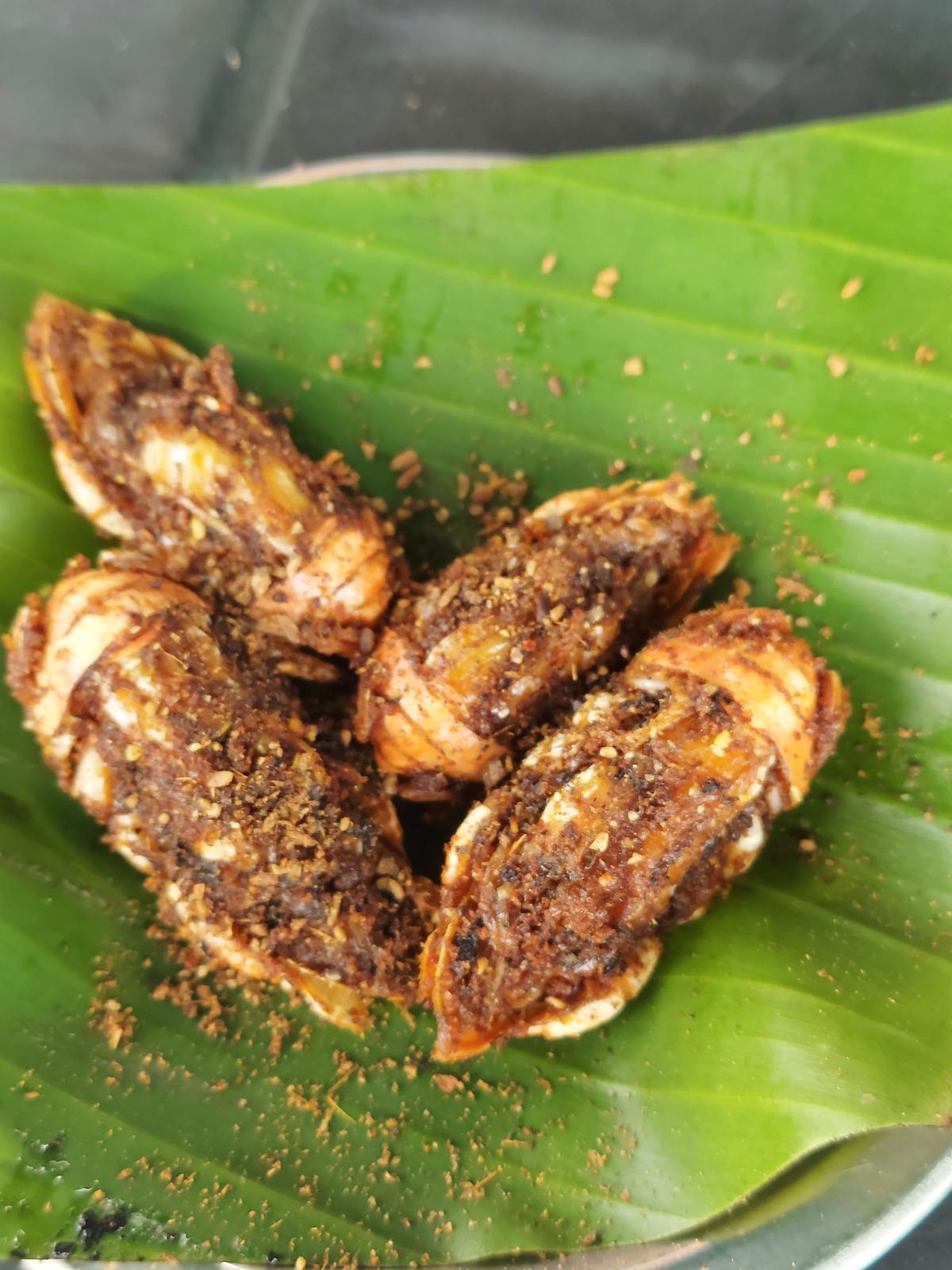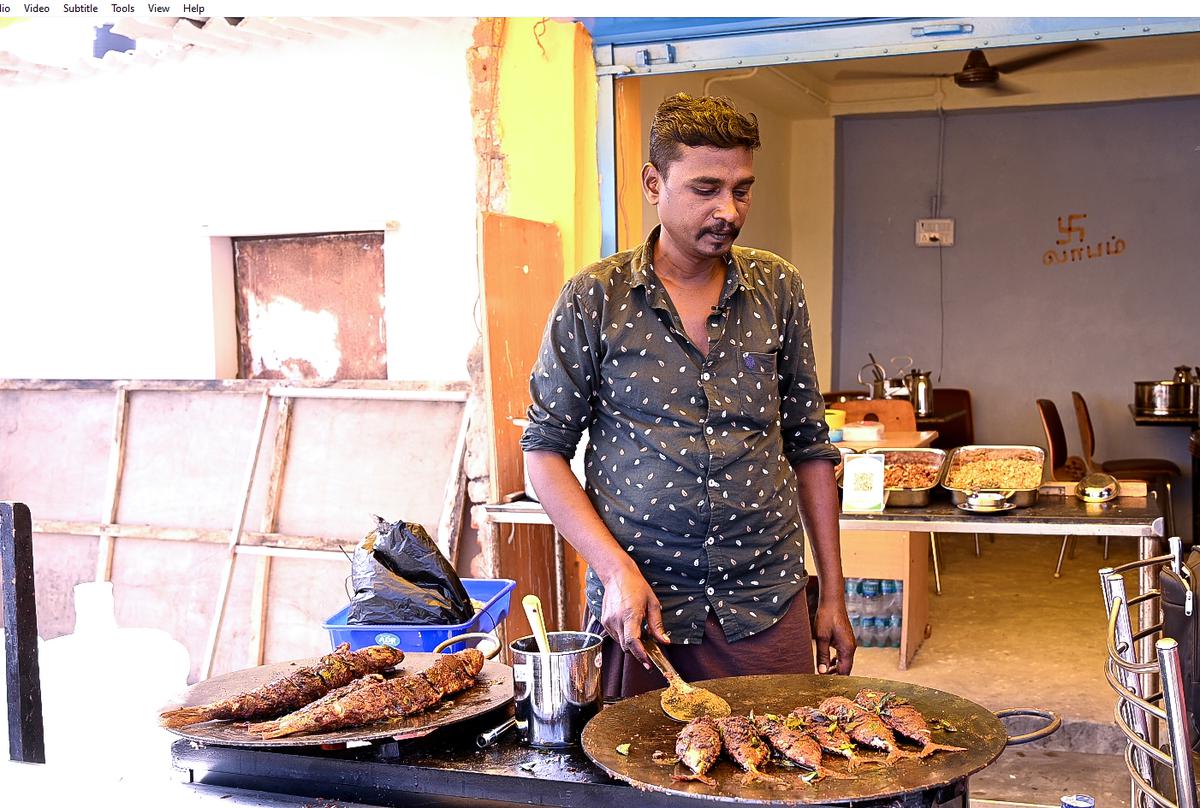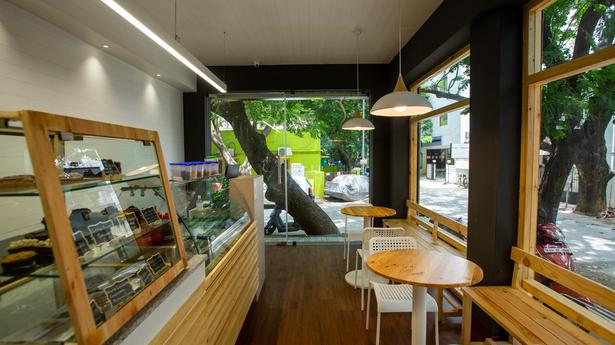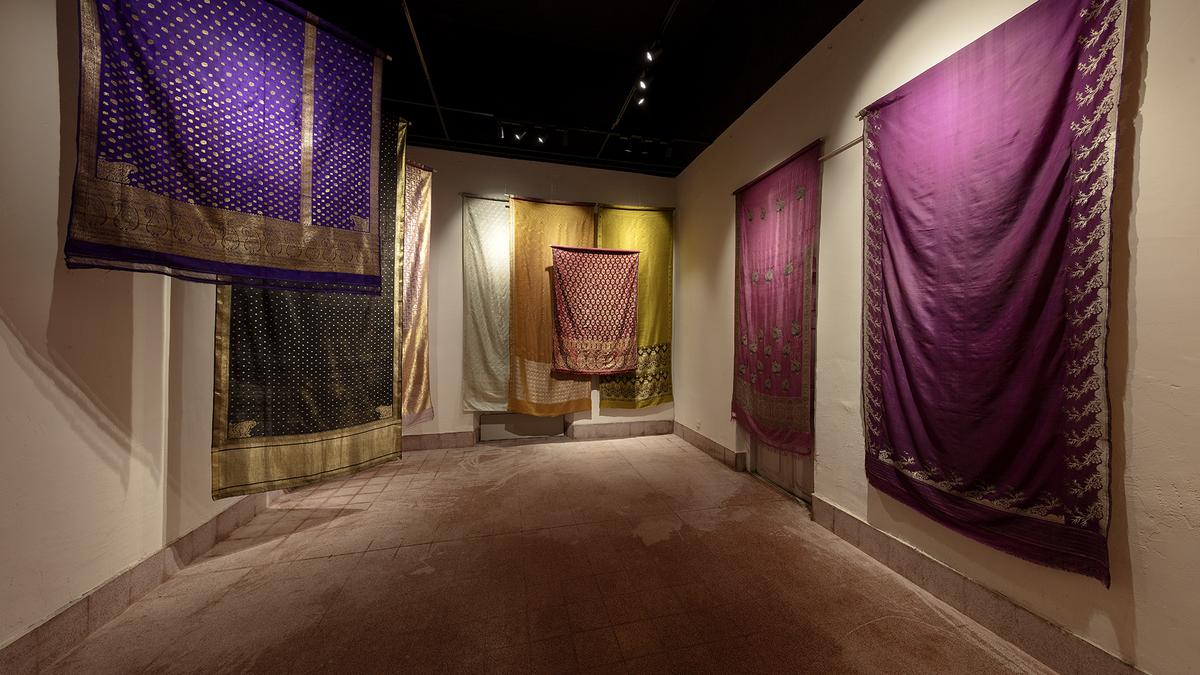At Nagas Mess, set on the scenic Loop Road in Pattinapakkam, Chennai, two pots of rice bubble over the fire. Kavitha S. keeps an eye on them between billing, welcoming customers and supervising her kitchen, a shack wrapped in the alluring scent of frying fish and cheery conversation.
Kavitha busy preparing lunch at Naga Mess
| Photo Credit:
Johan Satyadas
“My day begins by 5 am when I hand over cash to my husband, Suresh, and send him to Kasimedu market to buy fish,” says Kavitha, who has been running this food stall with her husband and mother-in-law for the past 18 years — a time when there was little else in the area. Pointing at the bright boats moored on the beach opposite her stall, she says, “After that, I also buy small fish such as sardines, kili meen (threadfin bream), nagara (Indian salmon), sankara (Japanese threadfin bream), nethili (anchovy) from fishermen in this area. “By 8am, my 16 staff, most of whom are women, arrive, and work begins. By 11 am we are ready to serve lunch.”
Naga’s Mess predominantly employees women from the fishing community
| Photo Credit:
Johan Satyadas
About 4 kilometres away, on the busy Marina beach, Sundari Sekar from the fishing community pioneered this concept of a seafood stall in 2000 when she launched the popular Sundari Akka Kadai. “The tsunami devastated our homes and our livelihoods, and it was after that that my mother-in-law, S Nageswari, inspired by Sundari, launched a seafood stall in a small pushcart near the Lighthouse in 2006. It was named Nagas after her, as she was well-known for her cooking in this community. I was trained by her, and now I am in charge,” says Kavitha.
At Meenavan Unavagam
| Photo Credit:
Johan Satyadas
The rest of the stalls came much later, with most of them opening over the past few years. Today, there are about 15 on this stretch, with SS Meenavan Mess being the latest to open, three weeks ago. While all of them are busy by lunchtime, some are more successful than others. To access M Rajesh’s display counter, piled high with fried prawns and crabs, you first need to navigate a crowd of hungry patrons waiting for their tables at Meenavan Unavagam, which opened in 2019.
Rajesh, who is a fisherman, goes to sea every day at 2am and returns by 5am with his catch, which is cleaned, cooked and served to customers. “We do not have a printed menu card as I am the menu card,” he chuckles, as he explains how customers are served whatever he catches that day. To supplement this, he also sources larger fish such as trevally, barracuda, seer, red snapper, grouper, pomfret, and croaker from Kasimedu, as well as prawns and crabs from Pulicat and Kalpakkam.
“Post the pandemic, the number of seafood stalls have been increasing. Not only due to the increase in customers, but also because the pandemic completely devastated us,” says Sneha Saravanan, who runs SS Meenavan Mess here, along with her mother M Jyothi. She adds, “Fishing is the only vocation we know. So the women in our community who were good cooks began making lunch for customers.” Commercially packed masalas are not used here, instead, these women make their own chilli powder and masalas for marinade, which gives the food a distinct home-style flavour.

Eeli poochi or mole crab
| Photo Credit:
special arrangement
Almost all of these eateries open for lunch by 11.30 a.m. and close by 4 p.m. Meals are priced at ₹50, which comes with unlimited rice, sambar, rasam, one vegetable, buttermilk and fish curry. While there were just a couple of these stalls in 2018, mostly frequented by passers-by and auto drivers, once Loop Road was developed, the traffic flow increased and more diners began to discover the space. With some help from social media and word-of-mouth reviews, the road began drawing tourists from across the world, students, professionals on lunch breaks and the occasional movie director or actor, in addition to auto drivers, fishermen and daily-wage earners. As his stall got more popular, Rajesh, whose mother runs his kitchen, began to recruit more of his family. His brother, an enthusiastic host and skillful salesman, waits on tables, welcoming customers warmly, encouraging them to try the catch of the day.
“Our home-style cooking with homemade spice powders is what people seem to prefer,” says Rathish Kumar, an MBA graduate who has been helping his mother Jyothi during his spare time. “As we are from the fishing community, we know to choose fresh fish, to clean it perfectly, and cook it deliciously,” says Jyothi with pride.
At the kitchen of Meenavan Unavagam
| Photo Credit:
Johan Satyadas
“Unlimited meals at ₹50 is almost like a freebie as we make our profit by selling side dishes such as tawa-fried prawns, squid, fried fish slices, sura puttu and a range of whole fish,” says Rathish. “I don’t have a deep freezer here. What we buy gets sold out and whatever is left over, my family members eat. Ours is a huge joint family, and all of them work in my eatery, so wastage is zero,” says Rajesh. Discussing their daily menu, Kavitha says they usually serve a spicy tamarind-based fish curry, stir-fried prawns, and masala squid. On weekends. menus are a bit more elaborate, boasting soft-shelled mole crabs, mussels, and even snails. “My bestsellers are fish cutlets, seer fish slices and prawn thokku . We keep the spice levels medium, and depending on customer preference increase the spices, which is predominantly pepper, not chilli powder,” says Rajesh.
Most of the shops have similar menus, with a focus on hot, freshly-made food. Hence, the rice is cooked in batches, and larger fish are marinated and fried whole after the customer orders them. As a result, the food is always hot, and the fish crisp when it reaches your plate.

At SS Meenavan Mess
| Photo Credit:
special arrangement
While the space is undeniably, with plastic tables and chairs, most stall owners stress on the fact that they are meticulous about hygiene. Says Rajesh, “Most of us here have our FSSAI permits, and all the eateries are inspected periodically by officials. We have abundant water supply, so there is no shortage of water. I shut the eatery every Monday just to completely deep clean the place and vessels.” Stating that all the shops hire women from the community, who are experts, to clean the fish,Rajesh says he has one person who exclusively cleans prawns while a few work on cleaning the fish, crab and squid. These meals also empower the women who cook them. “At Naga Mess, we employ women who are widowed and are sole breadwinners. I have also hired differently-abled women as we want to support our fishing community,” says Kavitha .
Nagas Mess is open for dinner, serving idli, dosa, idiyappam and parottas with seafood curries, but the rest of the stalls sell out by late afternoon, and then the owners close shop. “We all begin our day very early,” says Jyothi, adding that they are totally exhausted by 4pm, and hence prefer to relax in the evening instead of getting ready for another round of customers.For most of these fishermen, the business is conducted in their homes. While they hire extra space nearby for cooking, they serve the food in their living spaces. “This is the novelty here. Our family members cook in our kitchens, and we ourselves serve in our homes, which gives the feeling that those who come here are not customers but our guests,” says Rajesh, adding, “Once we shut shop by 5pm, we convert this space into a living room where we relax, watch TV, play cards and sleep.”
At meenavan unavagam
| Photo Credit:
johan satyadas





